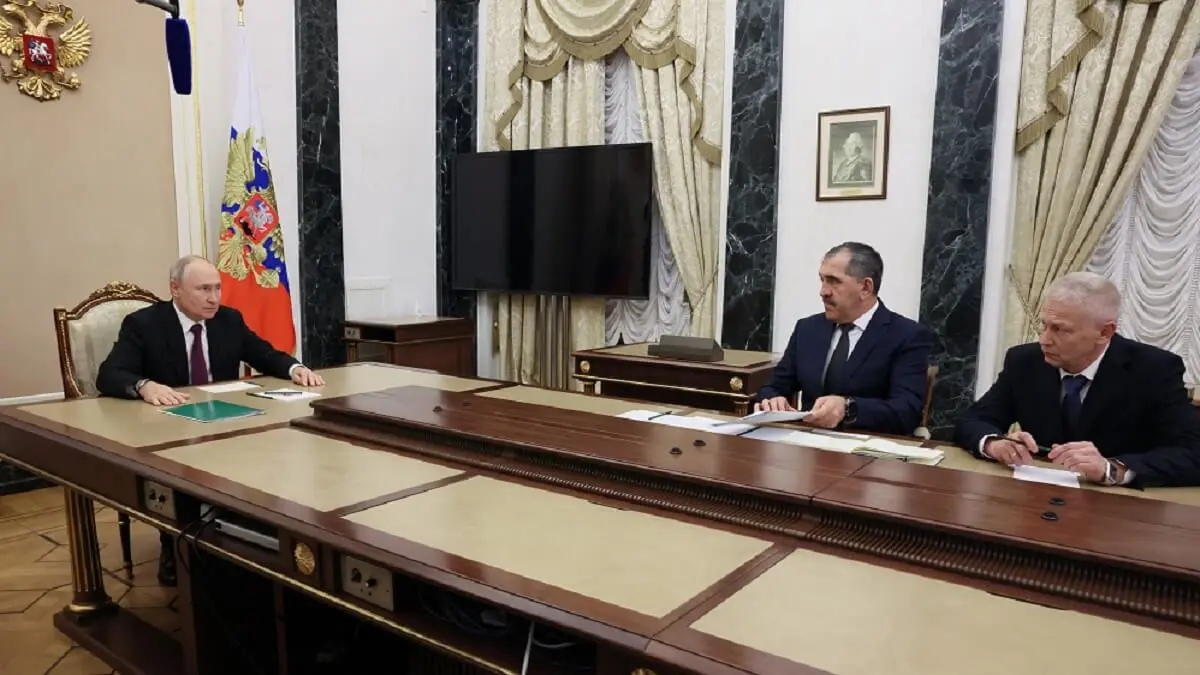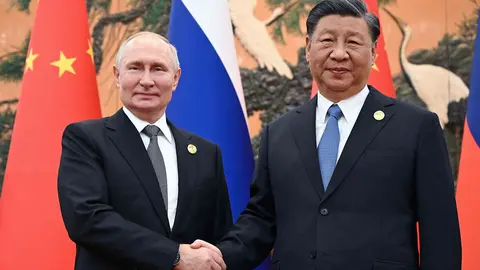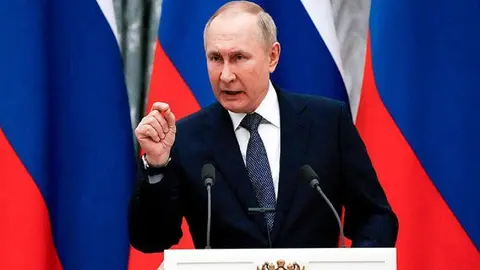Putin consolidates his influence in Africa

A mission he cultivates well, especially since Yevgeny Prigozhin's plane ‘accident’ on 23 August 2023, which killed him and his deputy, Dimitri Utkin. Both founders of the so-called Wagner Group, they had weeks earlier attempted a rebellion against President Vladimir Putin by refusing to sign renewed military contracts to intervene in the destruction of Ukraine.
That same day Yevkurov landed at Benina International Airport in Benghazi, the capital of eastern Libya. Since then, Yevkurov has made six trips to Libya, twice as many as Khalifa Haftar has made to Moscow. One of the consequences of these trips is the constant landing in Libya of cargo ships full of Russian-made weapons, many of which then continue their journey to other African capitals, mainly the Sahel belt. Russia has thus taken the lead in arms sales to African countries as a whole.
Yevkurov is constantly touring the continent, especially the countries that have literally expelled the French and Americans from their former bases, Mali, Burkina Faso and Niger, with whose military juntas he has forged multi-sectoral cooperation agreements, especially in the areas of security and defence, later complemented by Russia's foreign minister, Sergey Lavrov, by covering other fields such as energy and the exploitation of mineral resources.
The Russian deputy minister was able to win the confidence of African leaders from the outset. As a Muslim, he was photographed praying in a mosque in Burkina Faso, an image that sent a powerful message across the Sahel that Russia was not a colonial or neo-colonial power coming to replace the French and Americans with similar exploitative intentions, but to ‘help them regain their sovereignty’.
Putin tasked both Yevkurov and Lavrov with drawing on Cold War memories to imbue African leaders with the conviction that Russia ‘is a constructive ally, supporting the efforts of African countries to strengthen their security and defence capabilities’.
The two Russian ministers also take advantage of the fact that several thousand of the continent's political and economic leaders once spent time as scholarship students in the universities of the former Soviet Union, where they were already inculcated with ‘the intrinsic exploitative evil of the West’, a sentiment they now seek to reinforce on the basis of subsequent neo-colonialism.
In short, the feeling is spreading in Africa that Russia is helping them to gain real independence. And although Putin himself has only visited the continent three times in his quarter century as Russia's leader (always in South Africa), the Kremlin leader increasingly receives African leaders, both in Moscow and at his summer residence in Sochi on the Black Sea.
His strategy is by no means improvised. His military and diplomatic offensive in Africa coincides in time with the annexation of Crimea (2014) and the intervention in the Donbas regions of Ukraine. Just the following year, in 2015, Russia would send air and ground forces into Syria to save Bashar Al-Assad's regime, taking advantage of the fact that the US had supposedly abandoned its interest in the area. In 2017 Putin launched his new strategy of ‘reconquering’ Africa in Sudan and the Central African Republic, before from 2020 he will directly address the Sahel and the successive coups in Mali, Burkina Faso and Niger.
In this strategy, Russia uses Prigozhin's Wagner Group as a white label, without openly admitting that its mercenaries follow Kremlin directives. Since Prigozhin's death, the group has been replaced by the Africa Corps, and by dedicating its deputy defence minister exclusively to it, Russia openly assumes that it is behind the new anti-Western front in Africa.
Putin also maintains his traditional military and commercial cooperation with Algeria, as well as the latter's position on the Sahara, with the never-denied intention of finding an outlet to the Atlantic Ocean.
In France, whose influence is evaporating by leaps and bounds, debate has intensified over ‘a lack of vision regarding the political dynamics in its former colonies’. This blindness is being exploited by Russia to re-establish itself again, consolidate its influence, and without the shyness and euphemisms of development aid, become the main arms supplier, in short, opening up a new and worrying and threatening front of combat against the West.



